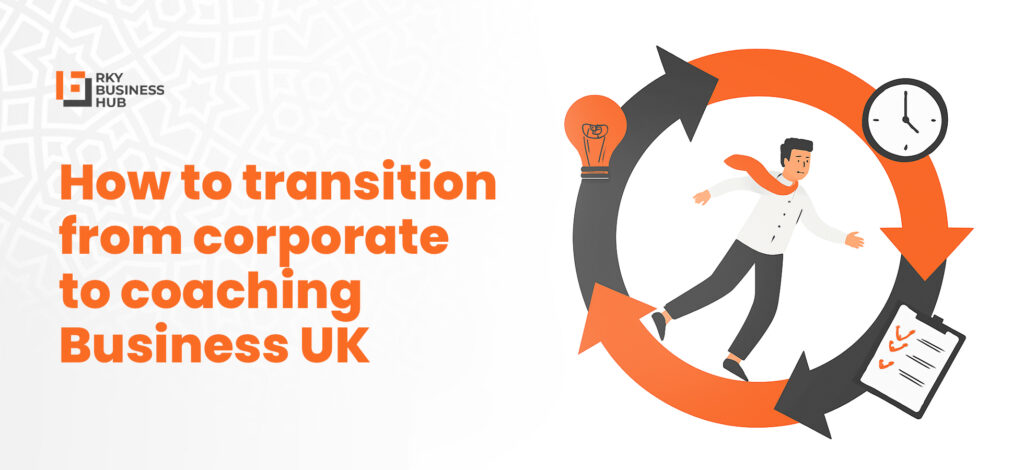Business Coaching vs Executive Coaching UK: Which is Right for You! This is a crucial area to observe when navigating the world of professional development, whether you are a startup founder wrestling with market entry or a seasoned manager eyeing a C-suite position.
But here’s the crux: the path isn’t always straightforward. You will hear terms like “mentor,” “consultant,” and, most frequently, “coach.” This is where the confusion often begins. There are two terms which are commonly used and usually used interchangeably: business coaching and executive coaching.
But are they the same? Not quite. And choosing the wrong one can be a costly misstep in both time and resources. How do you make the right choice for your specific needs?
That’s precisely what we are here to unravel. This guide is designed to give you a crystal-clear understanding of Business Coaching vs Executive Coaching UK: Which is Right for You?
We will explore the distinct focus of each, the tangible benefits they offer, and how to select the perfect fit to accelerate your professional journey. Let’s dive in.
Understanding the Difference Between Business Coaching and Executive Coaching
At first glance, “business coaching” and “executive coaching” might seem like two sides of the same coin. They both fall under the umbrella of professional coaching services in the UK and share the ultimate goal of fostering growth and success.
However, their focus, methods, and typical clients are distinctly different. The bottom line is this: one centres on the organisation, and the other centres on the individual.
Understanding the difference between business and executive coaching in the UK is crucial to ensuring you invest in the right kind of support.
What Business Coaching Covers in the UK Context
Think of a business coach as a strategic partner for the business itself. Their primary focus is on the health and trajectory of the entire enterprise. This is especially vital for startups and SMEs where the owner’s expertise might be in their trade or service, but not necessarily in the mechanics of scaling a company.
A business coach, who often acts as a small business mentor in the UK, rolls up their sleeves and dives into the operational nuts and bolts.
Here’s an example of what they typically cover:
- Strategic Planning: Helping you define or refine your company’s vision, mission, and long-term goals.
- Systems and Processes: Analysing and improving core operations, from sales funnels and marketing strategies to financial controls and supply chains.
- Growth and Scalability: Identifying new market opportunities, developing products, and building a framework that can support expansion without collapsing.
- Team Performance: Assisting with team structure, hiring processes, and creating a culture that drives results.
Essentially, business coaching for entrepreneurs in the UK focuses on developing a robust, profitable, and sustainable business model. The coach collaborates with the owner on the business.
See also:
What Executive Coaching Focuses On for UK Leaders
Now, let’s shift the focus. Executive coaching is all about refining the capabilities of individual leaders. It’s a highly personalised development process designed for senior managers, executives, and C-suite leaders who are already operating within an established organisation.
The premise is simple: a company can only grow as far as its leaders can take it. This is crazy, but the challenges at the executive level are often less about process and more about people, perspective, and personal effectiveness.
An executive coach in the UK provides a confidential sounding board to help leaders navigate these complex challenges. This is a core part of what a leadership development coach does.
Key focus areas for executive coaching for leaders in the UK include:
- Leadership Style: Enhancing self-awareness to understand and refine how a leader communicates, influences, and inspires their teams.
- Strategic Thinking: Developing the ability to see the bigger picture, anticipate market shifts, and make high-stakes decisions with greater clarity and confidence.
- Interpersonal Skills: Mastering conflict resolution, stakeholder management, and improving emotional intelligence to build stronger professional relationships.
- Career Progression: Preparing high-potential individuals for more senior roles and supporting them through significant career transitions.
Here, the coach works on the leader’s skills and mindset, believing that an enhanced leader will, in turn, elevate the business.
Key Overlaps and Distinctions Between the Two
So, where do they meet, and where do they diverge? Both forms of UK business and leadership coaching aim to produce better results.
A business owner who becomes a better leader through business coaching will benefit their company, and an executive who improves their strategic thinking will drive business success.
But here’s how you can tell them apart:
| Aspect | Business Coaching | Executive Coaching |
| Primary Focus | The health and growth of the business (systems, profits, strategy). | The personal and professional development of the leader (skills, mindset, impact). |
| Typical Client | Entrepreneurs, startup founders, and small business owners. | C-suite executives, senior managers, and high-potential leaders in larger organisations. |
| Core Question | “How can we make this business more successful?” | “How can we make this leader more effective?” |
| Methodology | Often involves hands-on, practical advice on business operations, marketing, and finance. | Focused on reflective, one-on-one sessions exploring behaviour, decision-making, and self-awareness. |
Ultimately, the choice between Business Coaching vs Executive Coaching UK: Which is Right for You? hinges on your primary objective. Are you trying to fix or grow the engine of your business, or are you looking to upgrade the skills of the person in the driver’s seat?
Read Also:
Benefits of Business Coaching for UK Entrepreneurs
For entrepreneurs and startups in the UK, the journey is often exhilarating but fraught with challenges. The landscape is competitive, and a brilliant idea doesn’t automatically translate to a thriving business.
This is where business coaching proves to be a game-changer. It’s not just about advice; it’s about building a foundation for sustainable success.
See also:
- 10 Benefits of Coaching in The Workspace (Definition)
- Rukayat Alabi, RKY Careers CEO, Joins the Esteemed Forbes Coaches Council
Driving Revenue Growth and Market Expansion
First, do you want to grow your bottom line? A primary benefit of engaging with a business coach is the intense focus on financial performance.
They help you move beyond just having a great product to building a profitable enterprise. A frequently cited statistic reveals that small businesses that receive mentoring are significantly more likely to survive beyond five years.
This longevity is directly tied to the strategic financial and market guidance a coach provides as part of UK coaching services for growth.
A coach helps by:
- Optimising Pricing Strategies: Ensuring your pricing is competitive yet profitable.
- Developing Sales Funnels: Creating a predictable system for attracting and converting customers.
- Identifying New Revenue Streams: Exploring untapped markets or complementary services to diversify income.
Improving Operations and Team Performance
It gets better. A business isn’t just about sales; it’s about the engine that runs behind the scenes. According to a global study by the International Coaching Federation (ICF), 86% of companies report that they have at least made their investment back from coaching.
This incredible ROI is often realised through crucial operational improvements. A business coach acts as an objective observer, identifying the bottlenecks and inefficiencies you’re too busy to see.
They work with you to:
- Streamline Workflows: Implementing systems and software to automate tasks and save time.
- Enhance Team Productivity: Clarifying roles, setting clear KPIs (Key Performance Indicators), and improving communication.
- Improve Financial Management: Assisting with budgeting, cash flow forecasting, and financial discipline.
Supporting Startups and Scale-Ups
For startups and scale-ups, a business coach is more than a guide; they are a crucial support system. The founder’s journey can be a lonely and uncertain one.
A coach provides accountability, a fresh perspective, and the moral support needed to navigate the inevitable highs and lows.
A business coach can help by:
- Shortening the Learning Curve: Helping you avoid common pitfalls that derail many new businesses.
- Building a Strategic Roadmap: Creating a clear, actionable plan for the next 12-24 months.
- Holding You Accountable: Ensuring you stay focused on the high-impact activities that will move your business forward.
Benefits of Executive Coaching for UK Professionals
For established professionals, the career ladder doesn’t get easier as you climb higher. The skills that got you to a senior position are rarely the same ones needed to excel there. This is where executive coaching steps in, offering tailored support for leaders.
Enhancing Leadership and Decision-Making Skills
Want to know the best part? Executive coaching is fundamentally about unlocking a leader’s full potential. An executive coach works with you to refine the very core of your leadership capabilities.
This is the essence of leadership coaching in the UK; it’s not about giving you the answers but helping you develop the framework to find the best answers yourself.
This process involves:
- Deepening Self-Awareness: Using tools like 360-degree feedback to understand your strengths and blind spots.
- Improving Strategic Acumen: A coach challenges your thinking, helping you to analyse complex situations from multiple perspectives.
- Cultivating Executive Presence: Honing your communication and influence to lead with greater impact.
Preparing for Senior Leadership Roles
Leaping into a senior leadership role is one of the most challenging transitions in a career. The scope of responsibility expands dramatically. Coaching for senior executives in the UK is specifically designed to bridge this gap.
An executive coach helps aspiring leaders to:
- Develop a Strategic Mindset: Shifting from operational thinking to a long-term, visionary perspective.
- Navigate Organisational Politics: Understanding unwritten rules and building the alliances necessary to be effective.
- Manage Stakeholder Relationships: Learning to balance the competing demands of the board, your team, and customers.
Read Also:
- How to Use LinkedIn Effectively for Your UK Job Search
- Rukayat Alabi Bags the Outstanding Coaching & Mentorship Award 2024
Managing Change and Organisational Transformation
In today’s fast-paced business environment, change is the only constant. Leaders are expected to guide their teams through uncertainty. An executive coach can be the difference between a chaotic transition and a successful transformation.
Here’s how an executive coach can help:
- Building Resilience: Providing a space for leaders to develop coping mechanisms to avoid burnout.
- Improving Change Communication: Crafting clear, compelling narratives to get team buy-in.
- Leading with Agility: Developing the flexibility and adaptability to steer the organisation through turbulent times.
Choosing the Right Coaching Approach for Your Goals
By now, the distinction between these two powerful forms of coaching should be clearer. The core of the Business Coaching vs Executive Coaching UK: Which is Right for You? Debate lies in a candid assessment of your most pressing needs.
Making the right choice ensures your investment yields the highest possible return.
When Business Coaching is the Better Fit
Let me explain. Business coaching is likely the right path for you if your challenges are primarily centred on the business entity itself. You should consider business coaching if your focus is on strategy, systems, and sales.
When Executive Coaching Offers More Value
On the other hand, executive coaching is the superior choice when the bottleneck is related to your leadership capabilities. When the goal is to enhance your leadership effectiveness, an executive coach will provide the specialised support you need.
It is also important to note the distinction between this and career coaching. While there are overlaps, career coaching vs business coaching in the UK is a different field, often focused on broader career pathing rather than specific performance.
Hybrid Coaching Models Available in the UK
The lines can sometimes blur, especially for founders of growing companies. For this reason, many UK coaching services offer hybrid models that address business growth and the founder’s leadership development simultaneously. A good coach will help you diagnose your primary needs and tailor an approach that delivers the best of both worlds.
How to Find a Qualified Coach in the UK

Selecting a coach is a significant decision. This is a partnership built on trust, expertise, and chemistry. Here are the key factors to consider when searching for professional coaching in the UK.
Certifications and Credentials to Look For
While the UK coaching industry is not formally regulated, several respected professional bodies provide accreditation. The 2023 ICF Global Coaching Study found that 85% of coaching practitioners hold a certification from a professional body.
Look for credentials from organisations such as the International Coaching Federation (ICF), the European Mentoring and Coaching Council (EMCC), or the Association for Coaching (AC).
Industry Experience vs Coaching Experience
Here’s something we can both agree on: you need a balance of both. The ideal coach has relevant industry exposure combined with proven coaching credentials.
They understand your world but are also experts in facilitating change and unlocking potential, rather than just advising a consultant.
Measuring ROI from Coaching Programmes
How can you use this technique to justify the investment? From the outset, discuss with a potential coach how you will measure the return on investment (ROI).
A global survey by the ICF found that companies typically see a median ROI of 7 times their initial investment in coaching. By setting clear, measurable goals at the start, you can track your progress and ensure the coaching is delivering tangible value.
Conclusion: Making Your Final Decision
The journey to professional growth is personal. Ultimately, the Business Coaching vs Executive Coaching UK: Which is Right for You? The dilemma is solved by looking inward first.
Are you building a machine, or are you upgrading the operator? If your primary challenge lies in the business’s structure, strategy, or systems, a business coach is your ally.
If your growth is limited by your leadership skills, mindset, or ability to inspire, an executive coach is the partner you need. By honestly assessing your goals, you can confidently choose the right path to unlock your full potential.
Become a Part of Thriving Founders and Entrepreneurs

Choosing between business coaching and executive coaching depends on your goals. Business coaching focuses on accelerating company growth, helping entrepreneurs refine strategies, improve operations, and boost revenue.
Executive coaching, on the other hand, develops leadership skills, decision-making, and personal effectiveness at the senior level.
At RKY Business Hub, we specialise in business coaching that transforms ideas into profitable ventures. From our 10-week accelerator programmes to branding, marketing, and community support, we provide the structure and visibility you need to grow in the UK market.
If your goal is to scale a business rather than sharpen leadership, our solutions are designed for you.
FAQs: Business Coaching vs Executive Coaching UK: Which is Right for You?
1. How do I decide between a business coach and an executive coach in the UK?
The choice depends on your primary goal. If you need to improve the business’s overall performance, systems, or profitability, choose a business coach.
If you need to enhance your personal leadership skills, decision-making, or effectiveness as a senior professional, an executive coach is the right choice.
2. What qualifications should a UK business or executive coach have?
Look for certifications from reputable bodies like the International Coaching Federation (ICF), the European Mentoring and Coaching Council (EMCC), or the Association for Coaching (AC). These credentials ensure the coach has met rigorous training and ethical standards.
3. Can one coach provide both business and executive coaching?
Yes, many experienced coaches, especially those who work with founders and entrepreneurs, can offer a hybrid model. They can help with both the strategic aspects of the business and also coach the leader on their personal development.
4. How much does executive coaching cost in the UK compared to business coaching?
Costs can vary widely based on the coach’s experience. Executive coaching for C-suite leaders is at a higher price point than business coaching for SMEs. However, the focus should be on the potential return on investment rather than the cost alone.


